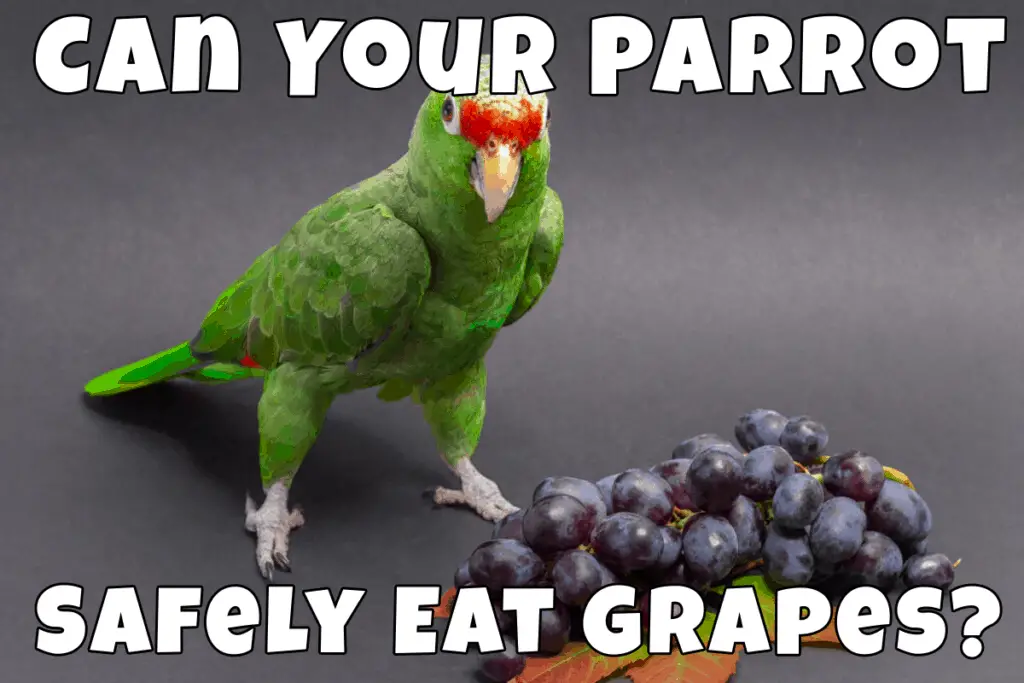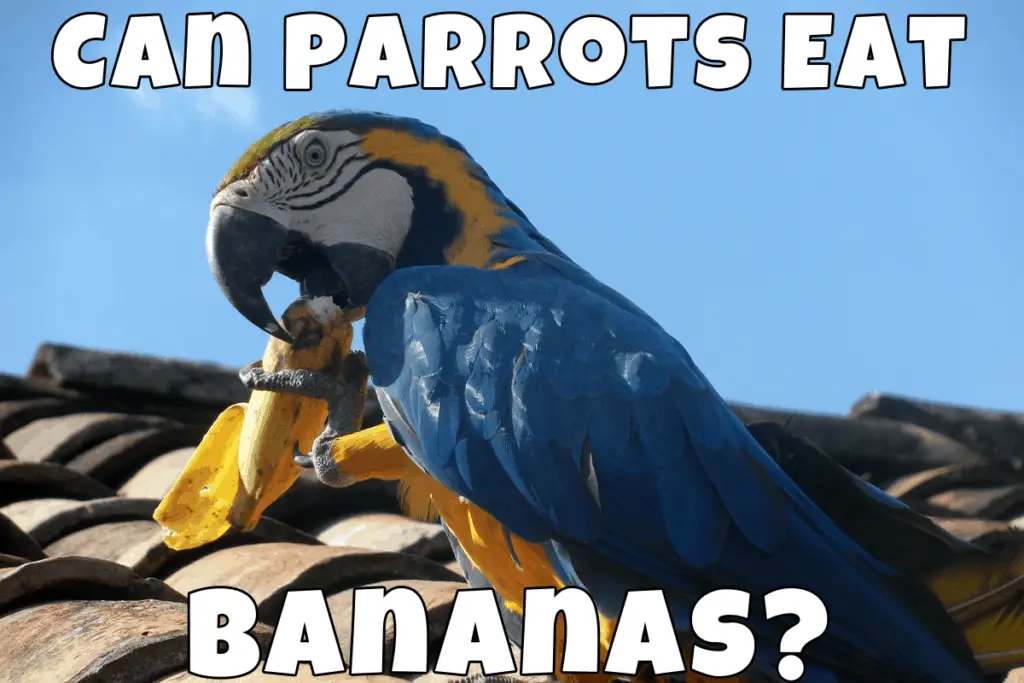Now that we know that the majority of vegetables and many fruits are safe for parrots to eat, I’d like to touch upon another group of foods that most of us have at home – herbs and spices. Generally, people never think about adding dry spices and spice mixes to a parrot’s diet. However, fresh green herbs are a different deal. Parrots eat many plants; why not try some that you grow at home or by fresh “from the garden”? Today, let’s talk about oregano.
Oregano is a safe herb to offer to your parrot. Plants and herbs are a significant part of a wild birds’ diet. A few oregano leaves not and then will become a tasty “seasoning” and can bring certain health benefits to your pet!
Do Parrots Eat Oregano?
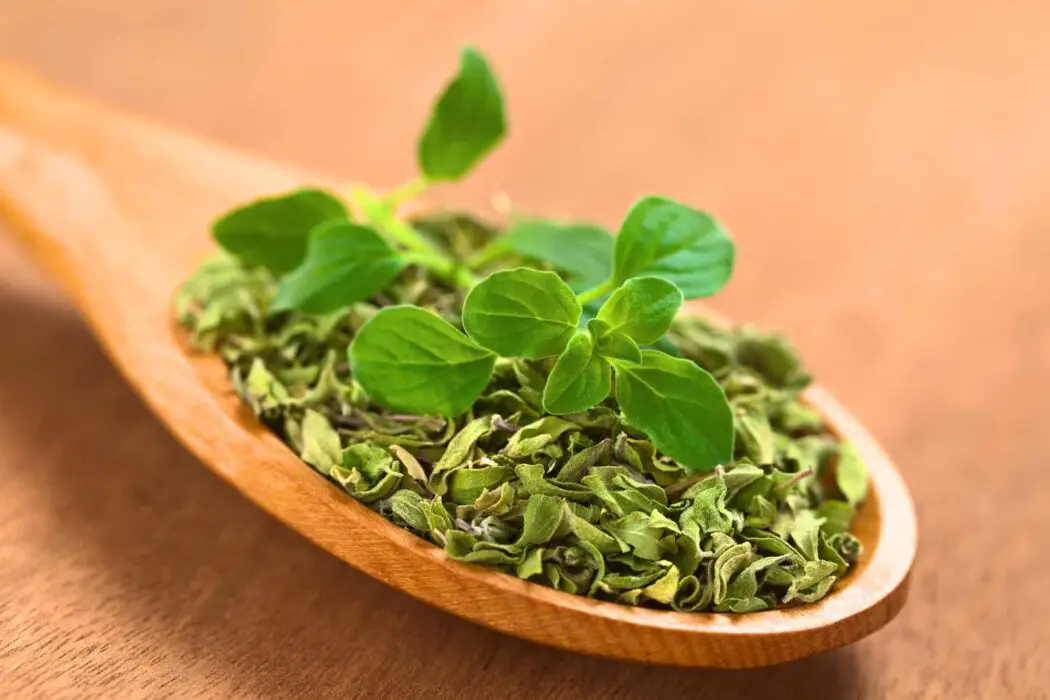
A big part of a parrot’s diet is plant-based. Many parrots species are known to include foliage in their meals. Ths, some wild herbs become their daily foods alongside nuts, seeds, fruit, and so on. Thus, feel free to add oregano as an additional source of fresh nutrients alongside other regular greens like spinach, lettuce, or fennel. But don’t make it a dominant source of foods! Pellets should still account for roughly 60-70 percent of the diet, with the rest being divided between nuts, seeds, veggies, and fruit.
As a rule, your bird will let you know immediately whether it will eat oregano in the future or not. If your parrot likes the taste, you can add it to “spice up” the regular leafy mix you prepare for the bird.
In addition, you can serve several oregano leaves with the veggie bowl of the day. It complements the mix!
Overall, you should never forget to listen to your parrot and its likes. Yes, oregano is safe for parrots and can be beneficial. But if the bird doesn’t like it, there’s no point in offering it again and again. You can get the same nutrients from other herbs!
Can Parrots Eat Daikon? Several Rules to Follow
What Are Nutritional Benefits of Oregano for Parrots?
Oregano is one of the healthiest herbs used in “home” medicine for thousands of years! Its excellent antibacterial properties make it a natural remedy of old times.
Today, oregano is more of a gourmet spice than a medicinal herb used to treat issues with digestion, cold, and other illnesses. However, the herb is still rich in nutrients that support your health if taken regularly.
Digestive health is a sensitive subject for parrots. It’s easily disturbed even by the regular foods natural for their diet. Thus, this herb contains oils that kill gut parasites, strengthen walls, and reduce the number of E. coli is a beneficial addition to a parrot’s diet.
As for the common cold and such, parrots are at high risk of respiratory complications during flu. Again, this is where oregano will come in handy to fight off such complications.
Can Parrots Consume Dried Oregano or Oregano Oil?
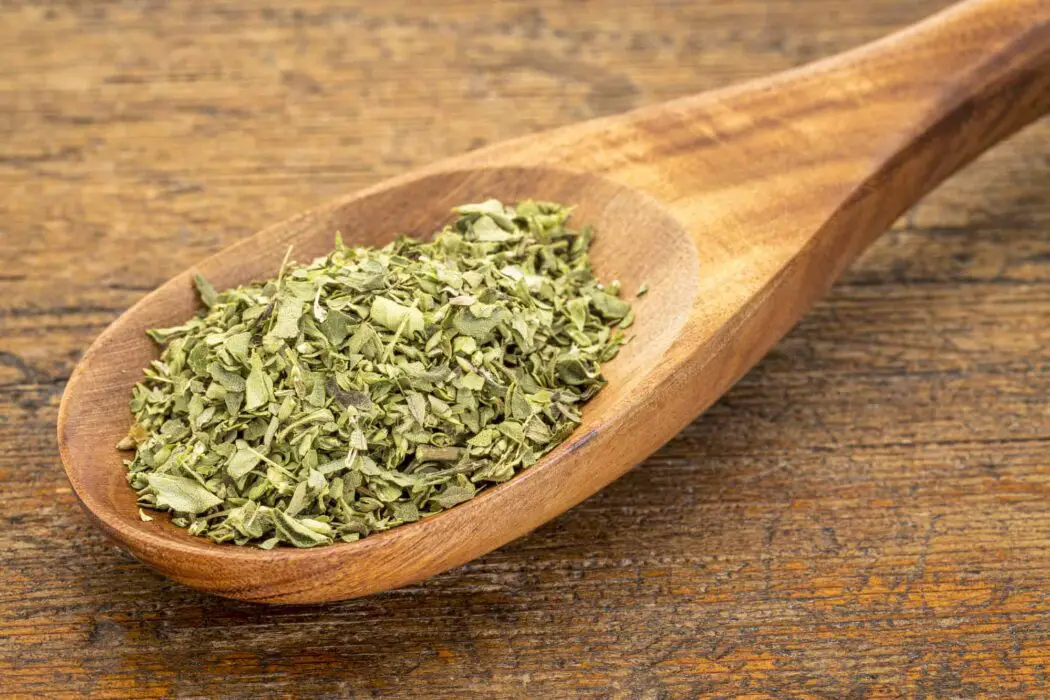
Let’s start with dried oregano. Generally, it is safe for parrots to eat. Dried herbs retain the same nutrients as the fresh ones and bear no harm to birds. It’s exceptionally efficient in the cold months when you see less and less fresh herbs in supermarkets. Or they come in poor quality. Most of us use dried oregano, after all.
However, there is one catch in this type of food. Dried herbs lose their taste. Your bird will likely not touch the herb at all! It won’t be interested in this type of oregano. They like crispy and fresh plants. But you can try anyway; birds have different tastes after all.
As for oregano oil, you should be wary. Pure oregano oil is highly caustic and can “eat through” your bird’s stomach walls. So never give your parrot pure oregano oil. If you must, dilute it in the water! But fresh herbs are healthier anyway.
Can Parrots Eat Fennel? Is It Safe for Them?
How to Grow Oregano at Home?
As I’ve mentioned, dried herbs are not the best choice for birds. If you want to provide fresh oregano all year round, you can easily grow it at home on your windowsill. It’s not hard at all. Let me teach you!
First of all, you’ll need either a pot or a bigger herb box if you want to grow more plants. If it’s for your parrot as well as your cooking, I can recommend basil, parsley, and sage. A bit of rosemary will be appreciated as well.
Once you have a pot, choose a universal soil in a shop and some oregano seeds. It’s recommended to place the seeds between two moist sheets for a few hours first. Then, you can put them into the soil (not too deep), spray them with water, and cover them with plastic wrap for food. Leave it this way for a couple of days, don’t forget to let it breathe regularly. In a couple of days, remove the wrap, and you’ll see tiny seedlings. Voila! The hardest part is done. Now, just let it grow and feed to your parrot.
What Other Herbs Can Parrots Eat?
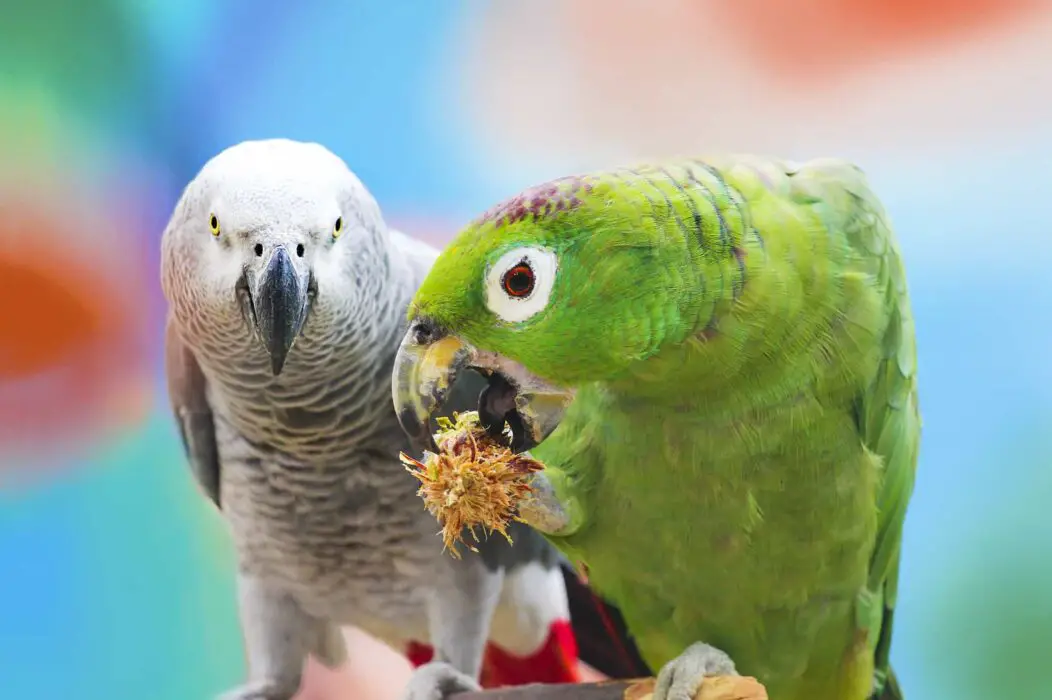
As I’ve mentioned, you can grow various other herbs at home that your parrot will gladly eat! This will not be a major part of their diet, but a tasty addition and a vitamin boost! Some of the following herbs are better used in a dried form; others better be fresh.
Cayenne pepper powder
This is quite an unusual ingredient that only a few parrots would risk offering to their parrots. No worries, parrots can safely eat a bit of cayenne pepper with their veggies for added taste. The pepper is also known to be a natural remedy against parasites. You may use a little sprinkle once in a while as a preventative measure! Some people sprinkle a bit into the water. Choose what suits you better!
Also, make sure that your pet drinks lots of water afterward!
Aloe Vera
This is a plant that many of us have at home. Well, at least the older generation seems to love it dearly. And its medicinal and “body care” properties prove that it’s one of the essential plants to grow at home. Of course, parrots eat aloe vera as well. But it’s also a great topical for any skin irritation your bird may have!
Just make sure that the party doesn’t eat the plant whenever it wants!
Can Cockatiels Eat Cauliflower? (Feeding Rules+Foods To Avoid)
Camomile
People love camomile tea, but parrots gladly consume it green! Just like with people, the plant has calming properties for birds. If your parrot is stressed, you can offer it fresh chamomile to calm its nerves.
Also, if you only have dried camomile for your tea, you can brew it and let it cool down before offering it to the bird.
Cinnamon
Yet another spice that you have solely for culinary purposes. But parrots love cinnamon as well! Among its beneficial properties are high amounts of fiber, manganese, iron, and calcium. In addition, this is an effective remedy against fungal and yeast, and overall bacterias due to its antibacterial properties.
Basil
This may become oregano’s companion in the herb box. Basil is just as easy to grow as the star herb of the article. In the future, I may write about basil in an entire article to describe how to offer it and what benefits to expect.
Parsely
Parrots adore parsley. It’s a tasty source of vitamins K and A. Although you have to limit the amount of parsley you give, its high contents of oxalic acid can reduce the absorption of minerals.
Dill
Dill is just as nutrient-dense as oregano. It contains impressive amounts of Vitamins A and C, manganese, and iron. It’s beneficial overall, but especially for bone health and the immune system.
Dandelions
Dandelion leaves are usually not available at stores but are in abundance in the wild. This is one of the popular herbs for the Macaw diet that I’ve written aboutbefore! Though, make sure you pick them in a clean environment. Or better grow them at home in the summer!
Thyme
Can Parrots Eat Thyme Without Any Dangers? This herb is a well-received home remedy for sick parrots, even among veterinarians. It’s antibacterial and is used to treat worms and diarrhea. And it’s easy to grow at home, even in winter.
This is a short guide on how to better introduce oregano to a parrot’s diet and what other herbs and spices birds eat eagerly. I hope you’ll find a small sunny windowsill in your place to grow a couple of the mentioned herbs. They are both useful for the bird and can boost up your culinary game to new heights!
Oregano, alongside many other nutrient-dense herbs, can become a great addition to a parrot’s diet!

